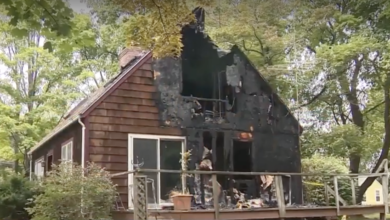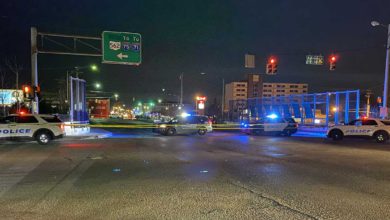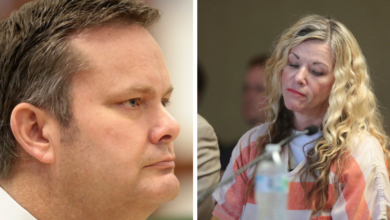
Inside a hangar that sits just outside the runways at Cleveland Hopkins International Airport, Russ Peterson is one of the many people responsible for making sure United Airlines planes run smoothly – both in the air and on the ground.
“The guys today are going to remove all the external tape, flags, covers,” he explained.
A specific airplane had been in storage for just over a month.
“We have to do a lot of checks on the airplane,” said Peterson, a shift manager for United Airlines Aircraft Maintenance in Cleveland, Ohio.
It’s a process that takes about three and a half days.
“We go over the whole entire fuselage, wings, everything to make sure there's nothing out of place.”
But for planes that have been in storage long-term, the process takes longer.
“Long-term storage takes probably five to six days,” he said.
Multiply that by dozens of planes at that one location.
As the pandemic hit last year, the CDC ranked flying a moderately high risk for COVID-19 and every airline grounded aircraft, leaving these companies scrambling for storage space.
“When they first came about and this all hit the fan we decided to take on as many as we could,” Peterson said. “We took on 53 which was the second largest city of stored aircraft initially.”
Peterson and his team were now in charge of dozens of empty aircraft. After working there for almost four decades, he said he had never seen anything like it.
“The work that we've done on the 53 aircraft far surpasses what we normally do because we’ve had to work so much harder to keep them and maintain them. Airplanes are made to fly, not sit on the ground. We had to jack airplanes and rotate tires so they don't get flat spots, so there's always something to do on every airplane.”
It led to images of planes stacked next to each other on the tarmac – one of the jarring images during the height of the pandemic that showed the toll on the travel industry.
“At the worst scenario we only had 200 airplanes flying when normally we had over 700 flying,” he said. “And all the airlines basically had to do the same thing.”
On May 20, 2020, United Airlines had the most aircraft in storage with 515 planes.
Now, things are looking up. With vaccines available nationwide and loosened restrictions, more people are filing seats, which translates into more planes filling the skies.
United Airlines said they’ve seen summer bookings for June through August go up 214% from July 2020.
It’s led to the greatest demand for trips that Heather Travis has ever seen.
“About March I got super busy,” Travis said. “March was my busiest month ever and I was booking trips for the summer, I was booking trips for 2022.”
As a travel agent, she said she sees the pent-up demand to travel, and some of the issues customers face with booking flights as everything goes back to mostly normal.
“It just feels a little different, there's maybe not so many options. I haven’t seen a whole lot of there's just no availability, not that problem, just flight prices. People are calling me like I can’t believe it’s going to cost me $1,700 to get me to the East Coast,” she explained.
Of the 53 United airplanes stored at Cleveland Hopkins International Airport, just one remains in long-term storage. One last reminder of the way the pandemic rippled through the travel industry.
“It’s wrapped up, engines are closed off, air conditioning systems closed off, flight controls are disabled,” Peterson said, explaining the last plane in long-term storage. But even this one will be out by September.
“It really does show the horizon for us, so we can get everything back flying,” he said.
Workers like Peterson can focus less on the unknown every day and more on the regular maintenance and safety of the planes.
“That’s it. That’s what I like to do, keep them flying, keep them safe.”
In June, United Airlines will fly its largest schedule since before the pandemic, with 561 aircraft in the active fleet. By July, they expect to be operating 80 percent of its domestic network compared to July 2019.









